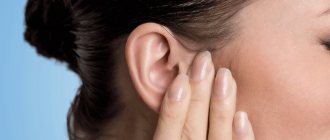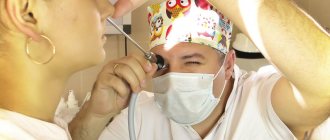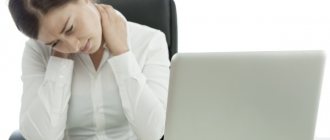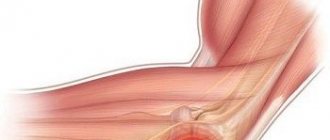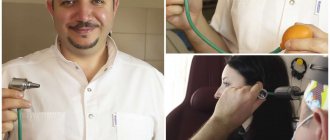Ear noise and pain - these symptoms often appear simultaneously. This combination of symptoms does not go unnoticed by a person. After all, a disease that is accompanied by ear pain, headache, congestion and tinnitus is quite difficult to tolerate. This condition knocks a person out of the usual rhythm of life, and it is not surprising that the main thought at this time is how to get rid of the painful condition as quickly as possible.
The causes of ear noise, pain and congestion may be completely harmless, but they can also signal serious illnesses, ranging from ear infections to brain diseases and neurological conditions.
As a rule, the average person, if his ear is noisy or there is congestion and pain in it, he tries to independently understand the symptoms and find methods of treatment. But this is initially incorrect. Only a doctor can identify the cause of the disease and suggest the right methods of treatment. Sometimes, to determine the cause of pain, noise in the ear or congestion, consultation with doctors of several specialties is required.
What causes noise, pain and congestion in the hearing organ? And how to cure this condition? You will find the answer in our new article.
What is tinnitus like?
In medicine, such a condition as noise in the ear has its own (medical) name - tinnitus. The noise can occur in the right or left ear, or in both at once.
The human ear is an organ with a complex structure. In the inner part of the ear there are special hair cells that convert external sound vibrations into nerve impulses so that our brain can perceive them correctly. If some pathological factors adversely affect hair cells, they begin to move in a chaotic manner - and the brain perceives this chaotic movement as noise.
What else is important to know about tinnitus? That it is a symptom and not a separate disease. Accordingly, treating noise exclusively will not give a positive effect - the person will only waste precious time.
It is necessary to determine the underlying disease that caused the pain and noise and treat it.
It is customary to distinguish two types of noise: subjective and objective. With subjective noise, only the person hears the sounds. At the same time, there are no external sounds. Objective noise is actually present sounds that the doctor also hears during examination.
Noise can manifest itself in different ways. Patients describe their sensations as if they were in the ear:
- rings;
- squeaks;
- buzzes;
- whistles;
- gurgles;
- clicks.
The sooner the immediate cause of tinnitus, which is accompanied by pain and ear congestion, is determined, the sooner the correct treatment will be selected.
Causes of noise: ear diseases
Tinnitus can be caused by diseases of the hearing organ, which are also accompanied by pain in the ear and a feeling of stuffiness. Similar diagnoses include:
Make an appointment right now!
Call us by phone or use the feedback form
Sign up
- Otitis is an inflammatory process of the hearing organ. Usually otitis media leads to this condition. It is accompanied by severe ear pain and a feeling of stuffiness. With delayed treatment, the disease turns into a purulent form. With purulent inflammation, purulent masses accumulate in the tympanic cavity, causing a feeling of fullness. As soon as there is not enough space for the pus, it breaks through the eardrum and pours out. After this, congestion and pain go away.
- Labyrinthitis is an inflammation that affects the internal part of the hearing organ. With labyrinthitis, the patient also complains of dizziness, hearing loss, impaired coordination and balance.
- Eustachitis is inflammation of the Eustachian (auditory) tube. The infection most often enters it from the nasopharynx due to improper treatment of rhinitis, pharyngitis, sinusitis, etc. With this diagnosis, in addition to tinnitus, there is a sensation of fluid transfusion in the ear cavity, a feeling of stuffiness and hearing impairment.
- Mastoiditis is an inflammation of the mastoid process of the temporal bone, which usually acts as a complication of otitis media. Mastoiditis is characterized by severe ear pain radiating to the back of the head, fever, decreased hearing, ringing in the ears, attacks of nausea and vomiting.
- Diseases of the auditory nerve - such pathologies include sensorineural, occupational and senile hearing loss. When hearing loss occurs, the auditory receptors are affected, which causes progressive hearing loss.
- Earwax is a common cause of tinnitus and a feeling of stuffiness. Impactions are accumulations of wax that block the outer ear canal and cause hearing problems.
- Ear tumors can also cause noise, pain, dizziness and other unpleasant symptoms.
- Mechanical damage to the hearing organ - problems with the ears can be caused by bruises, head injuries, barotrauma, etc.
- A foreign object getting into the ear canal—parents of young children often turn to an otolaryngologist with a similar problem. While playing, children often stick small toy parts, beads, etc. into their ears.
- Meniere's disease is a non-inflammatory disease of the internal organ of hearing, occurring with attacks of dizziness, ringing and progressive hearing loss.
When the first alarming signs appear: pain and ringing in the ear, congestion, dizziness, the first thing you should do is contact an otolaryngologist. It is possible that one of the pathologies of the hearing aid has developed, which requires immediate, competent therapy.
Friends! Timely and correct treatment will ensure you a speedy recovery!
Causes of tinnitus
pathological sounds are distinguished by intensity from barely perceptible to unbearable.
The causes of ringing in the ears can be very different. Most often this is a symptom of the disease:
- Inflammation of the inner and middle ear
- Impaired rejection of sulfur masses
- Cervicothoracic osteochondrosis
- Ear injuries of various types
- Increased intracranial pressure
- Vascular atherosclerosis
- Tumor formations
- Poisoning with industrial poisons
The sensation of extraneous sounds may be a consequence of taking certain medications - aspirin, gentamicin, quinidine, etc. It is important to pay attention to the symmetry of the occurrence of sound phenomena in the ears. It can be heard in one ear or both ears. This is a very important sign. An abnormal buzzing or wheezing sound may occur after exposure to extremely loud sounds. In this case, acoustic trauma occurs.
If the noise occurs after flying on an airplane or jumping with a parachute, then it is caused by barotrauma. In this case, there is decreased blood pressure, decreased hearing, and a feeling of congestion.
If the noise is combined with a headache, high blood pressure, burning and pressing pain in the heart area, you should consult a cardiologist. These symptoms occur during hypertensive crisis and coronary heart disease. The combination of ringing in the ear with decreased visual acuity and deafness speaks in favor of a tumor of the auditory nerve. This tumor exists for a long time without symptoms.
Causes of noise not related to hearing aids
If there is noise in the ear, and unbearable pain also occurs, the causes of this condition will not necessarily be related directly to the hearing aid. Often the cause of tinnitus and pain is such diagnoses and conditions as:
- hypertension;
- atherosclerosis;
- metabolic problems;
- diabetes;
- osteochondrosis;
- side effects from taking certain medications;
- poisoning with alcohol or toxic substances.
If unpleasant symptoms do not go away, but only intensify, the best decision would be to consult an ENT doctor to understand the cause of this pathological condition.
What to do if water gets into your ear and it becomes blocked
Water gets into the ear in the most ordinary situations (swimming in a pool, sea, river, shower) and this causes a feeling of stuffiness. So, water got into my ear and I was wondering what to do about it:
- clean the ear from water (with a soft cloth, cotton wool);
- with your palm pressed to your ear, perform rotational movements (tilt your head);
- Press your ear firmly with your palm (you can tightly close the ear canal with your index finger) and then sharply remove your hand;
- perform jumps on one leg, tilting your head;
- lying on your side, placing a towel under your head, perform chewing movements;
- insert a soft cotton wool into the ear, tilt your head and pull the auricle up and back, you can do a small ear massage;
- drip hydrogen peroxide (2-3 drops) if nothing else helps. Boric or medical alcohol will do.
If such incidents occur periodically, it is worth thinking about how to prevent an unpleasant situation; perhaps you should bathe with cotton pads in your ears. Very often the ear becomes very blocked due to the swelling of the existing wax plug in a humid environment.
Such cases cannot be ignored - this can lead to unwanted processes in the ear.
Diagnostics
At the initial consultation, the ENT doctor questions the patient for complaints, collects a detailed history and performs an otoscopy or endoscopic examination. An informative study of the degree of hearing impairment is audiometry. In addition, a tympanometric study of the functions of the middle part of the hearing organ (tympanic membrane and auditory ossicles) can be carried out. If there is a suspicion of a disease of the labyrinth (internal part of the hearing organ), special tests are performed to identify vestibular abnormalities. Sometimes an X-ray, CT scan or MRI may be needed.
Sign up for a consultation right now!
Call us by phone or use the feedback form
Sign up
At the same time, laboratory blood tests and examination of discharge from the ear cavity, if any, are prescribed to determine the causative agent of the disease and sensitivity to antibiotics.
To make a diagnosis, as a rule, a routine examination or questioning of the patient’s complaints is not enough; it is necessary to conduct a set of studies to establish the correct cause of the unpleasant condition.
Treatment
Treatment of congestion, ringing and noise in the ears is carried out based on the reasons that provoked these symptoms. Inflammatory processes of the hearing organ are treated with antibacterial or antifungal therapy using physiotherapy. If the problem is a sulfur plug, its high-quality removal is carried out in an ENT clinic, after which problems with the hearing organ disappear. A foreign object in the ear canal is also removed in the ENT doctor's office. Some pathologies, such as Meniere's disease and tumors, are treated surgically. For atherosclerosis, atherosclerotic drugs are prescribed. If hearing problems are caused by taking certain medications, you should stop taking this drug and discuss its replacement with your doctor. Sensorineural hearing loss is treated with microcurrent electrical stimulation of hair cells using Transair-07 and Audioton devices. These devices have been successfully used in the ENT Clinic of Doctor Zaitsev for a long time and have already helped many patients regain their hearing.
Whatever the cause of tinnitus, the first step towards getting rid of the unpleasant symptom should be a consultation with an otolaryngologist. To make an appointment, please call +7 (926) 384-40-04.
Come! We will definitely help you!
How to deal with discomfort?
At first, patients may not pay attention to noise in the ears and head, but as the underlying disease progresses, these complaints become more intense and worsen the quality of life. In some cases, the sound is so intrusive that it prevents a person from sleeping, concentrating on work or other tasks, and the body becomes depleted.
Since tinnitus is not a diagnosis, but a symptom, the cause of the disease must be eliminated. It is important not to self-medicate, but if complaints arise, consult a doctor and perform diagnostic measures, because ringing in the ears can be a sign of a pathology of the nervous system, a tumor process, or circulatory disorders.
For hypertension, it is important to keep the pressure level no higher than 140/90 mmHg. For this purpose, antihypertensive drugs are used: diuretics, beta blockers, ACE inhibitors, sartans or calcium channel blockers. It is also recommended to take statins, which reduce cholesterol levels in the blood and prevent the formation of atherosclerotic plaques. For occasional minor increases in blood pressure or for vegetative-vascular dystonia of the hypertensive type, herbal preparations and folk remedies based on valerian, motherwort, mint, and hawthorn can be used.
With low blood pressure, it is recommended to take tonic drinks, for example, coffee or strong tea, hot hibiscus. Among pharmaceutical preparations, caffeine tablets, tincture of Eleutherococcus or ginseng are effective.
In addition to drug treatment, it is necessary to eat rationally, avoid stressful situations, experience moderate physical activity, and massage. All these activities are aimed at strengthening the circulatory and nervous systems, making them more resistant to external irritants.
If the cause of tinnitus is other diseases, consultation with an ENT specialist or neurologist is necessary. In case of infectious processes, it is possible to prescribe antibiotics and anti-inflammatory drugs. If neoplasms occur, the doctor may suggest surgical treatment.
